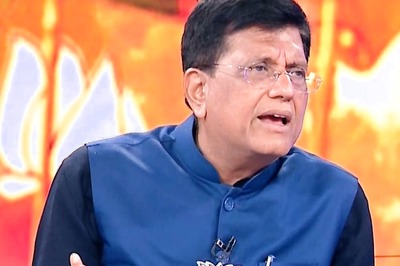
views
Amman: Thousands of supporters of Jordan's King Abdullah II took to the streets of the capital to express their loyalty, as a resilient opposition protest movement demands political reforms and new elections.
The 7,000 people on Saturday sought to put on a display that would counterbalance scenes a day earlier when security forces and government supporters clashed with thousands of anti-government protesters.
One person died in Friday's protests, and the government insisted he was one of its supporters and that he died of a heart attack.
But Khairi Saad's brother said Saturday that he was among the anti-government protesters, and an Islamic opposition groups said he was beaten to death by police. He was the first person to die during nearly three months of unrest.
Jordan's protests have generally been smaller than those in other Arab nations and in another difference have not sought the ouster of the country's leader, Abdullah.
But the young Jordanians organising the demonstrations said this week they are intensifying their campaign, demanding the removal of the prime minister, creation of a more reformist government, the dissolving of what is seen as a
docile parliament and the dismantling of the largely feared intelligence department.
Abdullah's supporters waved the king's portrait and danced in Saturday's march, chanting, "With our lives and souls, we sacrifice for you, our king."
Friday's protests were the first to turn violent. Around 120 people were injured in the fighting between pro and anti-government crowds.
The 55-year-old man who died on Friday was beaten by police, said Hamza Mansour, leader of the Islamic Action Front, Jordan's largest opposition party. The man's brother, Mohammed Saad, confirmed he was part of the anti-government crowd.
Authorities clung to their version. Police chief Lt Gen Hussein Majali, state forensic doctor Qais Qsous and president of Jordan's Doctors Association Ahmad Aroumti said an autopsy earlier in the day backed the conclusion that he died of a heart attack.
The opposition said Prime Minister Marouf al-Bakhit, who only took office on February 9, must resign.
"He is directly responsible for having police brutally attack unarmed civilians who wished to express their political views peacefully," said Mansour, of the Islamic Action Front.


















Comments
0 comment